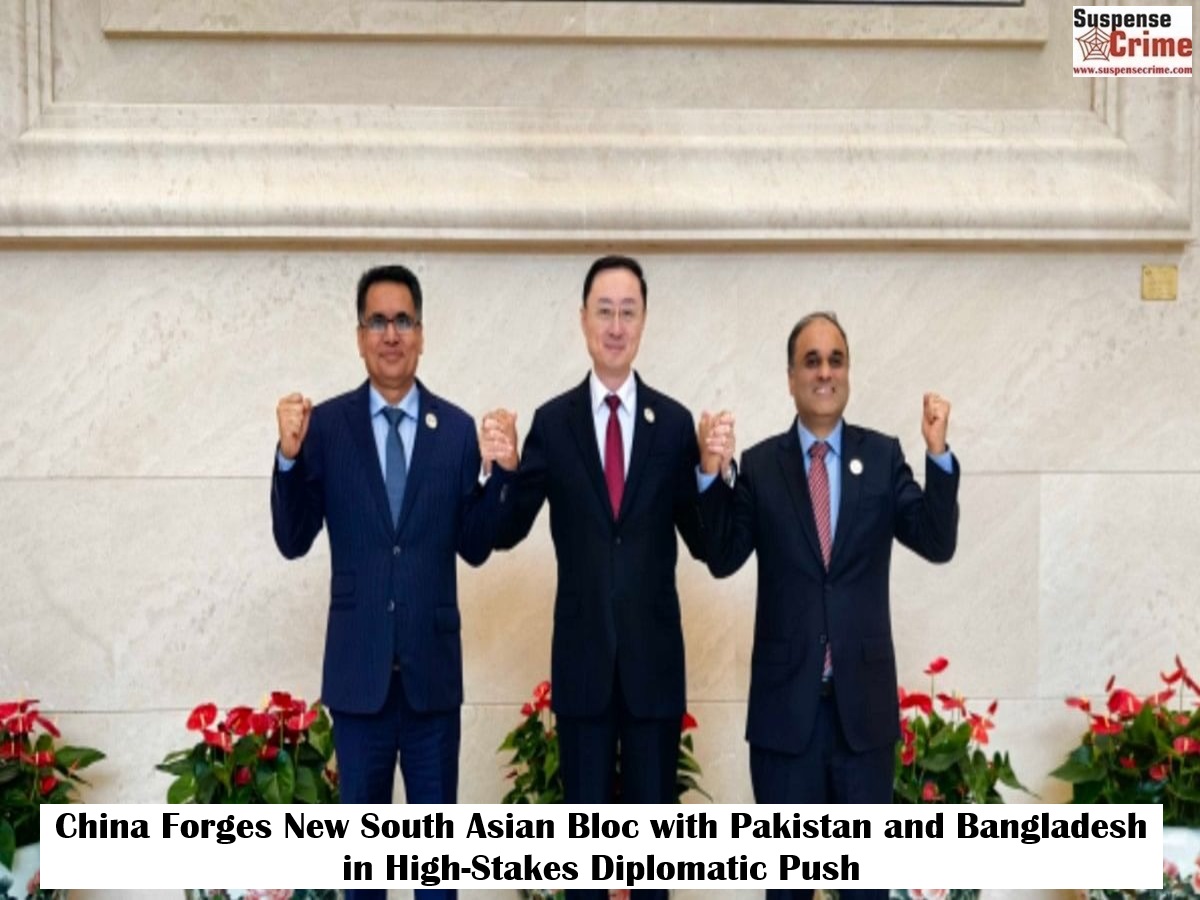
Suspense crime, Digital Desk : In a significant geopolitical development, China, Pakistan, and Bangladesh have held their first-ever trilateral meeting of foreign ministers, signaling the formation of a new strategic cooperative in a region long dominated by complex rivalries. The inaugural meeting, held on the sidelines of the 78th UN General Assembly in New York, marks a concerted effort by Beijing to deepen its influence and forge a new axis in India's neighborhood.
The high-level discussion brought together China's Foreign Minister Wang Yi, Pakistan's caretaker Foreign Minister Jalil Abbas Jilani, and Bangladesh's Foreign Minister Dr. A K Abdul Momen. The agenda was wide-ranging, officially focusing on enhancing cooperation in key areas like economic development, security, counter-terrorism, climate change, and disaster management.
However, the meeting's true significance lies in its strategic undertones. For China, it's an opportunity to formalize its role as a central and "reliable" partner to two major South Asian nations. Both Pakistan and Bangladesh are crucial participants in China's ambitious Belt and Road Initiative (BRI). Pakistan is home to the flagship China-Pakistan Economic Corridor (CPEC), a multi-billion-dollar infrastructure project, while Bangladesh has also welcomed significant Chinese investment.
During the talks, Wang Yi emphasized China's commitment to "good neighborliness" and pitched Beijing as a partner for common development, aiming to "inject new impetus" into regional stability. He also promoted China's "three major global initiatives" concerning development, security, and civilization, framing the new trilateral relationship within Beijing's broader vision for global governance.
Both Pakistan and Bangladesh reportedly welcomed the initiative, expressing their willingness to strengthen this trilateral cooperation. For them, a closer partnership with an economic superpower like China offers substantial benefits for their national development and a potential counterbalance in regional politics.
This inaugural meeting is more than just a diplomatic photo-op; it represents the formalization of a strategic triangle with Beijing at its apex. As China continues to expand its economic and political footprint, this new bloc is set to reshape the geopolitical landscape of South Asia, presenting new dynamics and challenges for the region.
Read More: The Unstoppable Surge Why Donald Trump Feels Bulletproof Right Now

 Share
Share



